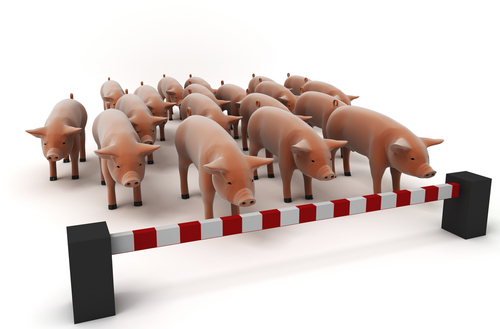Swine flu vaccine not safe
 As India goes on an overdrive to have indigenous H1N1, or swine flu, vaccines ready by April 2010, there comes a warning from the US: not only does the new vaccine have the usual side effects associated with flu vaccines, but it also may not provide good protection to most of the high-risk groups.
As India goes on an overdrive to have indigenous H1N1, or swine flu, vaccines ready by April 2010, there comes a warning from the US: not only does the new vaccine have the usual side effects associated with flu vaccines, but it also may not provide good protection to most of the high-risk groups.
The packaging inserts for H1N1 vaccines on the US Food and Drug Administration (FDA) website say the vaccines can cause Guillain Barre Syndrome (GBS), a paralysing neuromuscular disorder. GBS was one of the side effects of the swine flu vaccine that reportedly killed 25 people in the US in 1976. The swine flu strain it was supposed to protect against killed one person and hospitalised 13.
The USFDA website inserts — given by manufacturers Novartis, CSL, MedImmune LLCand Sanofi Pasteur — say the H1N1 vaccines are also less effective in high-risk such as the elderly and people with immuno-deficiency (the elderly, people with HIV, cancer, those who’ve had an organ transplant).
Its safety and effectiveness in pregnant women, nursing mothers and children less than 4 years has not been established, with the manufacturers also listing adverse reactions such as rash or influenza-like symptoms.
“We have always said the safety of the vaccines is paramount. When companies start trials there has to be proper evaluation,’’ said Dr V. M. Katoch, secretary, health resea-rch, Union ministry of health.
Four manufacturers — Novartis, Baxter, Glaxo SmithKline and Sanofi Pasteur — have agreed to do trials in India but are waiting for guarantee of purchase from India.
India has reported 10,233 cases of H1N1, and 315 deaths.